Luxury California resort accused of restricting public beach access – SFGATE
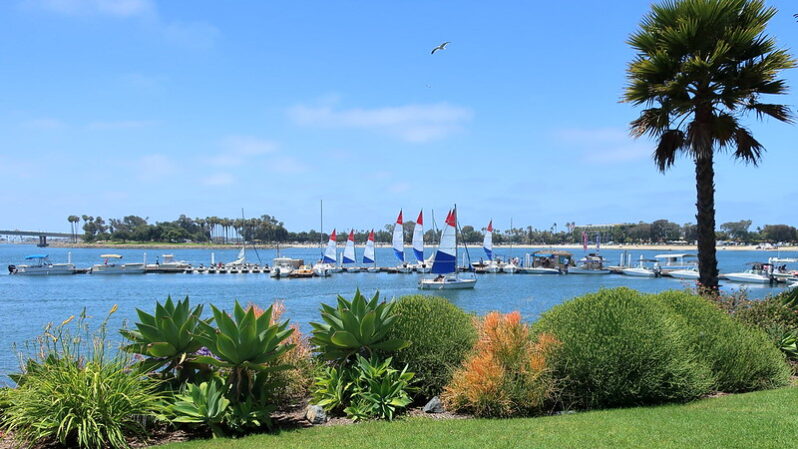
A California Coastal Commission report reviewed by SFGATE accuses Paradise Point Resort of numerous violations that “impede public use of the area and reinforce the impression that the entire area was private…” Alleged violations included the failure to put up a single “public access” sign, blocking public pathways to the beach, and the installation of a kiosk and security guard at the primary parking entrance. Another allegation states that the resort built or placed uncovered dumpsters and an event tent on public pathways and parking spots.
Greeks Fight for Their Constitutional Right to Free Access and Use of Their Country’s Beaches
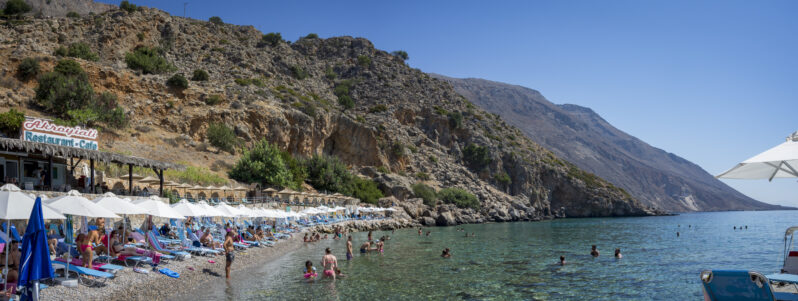
The beaches in Greece are considered a “public good” per their Constitution. To the average Greek citizen, this is interpreted to mean that if a hotel is built in a way that it blocks access to the beach, they have the right to walk through the hotel to reach the beach.
Increasingly, however, businesses that have been issued permits to operate in the coastal areas have taken over the coast with their concessions, and sunbeds and umbrellas are packed on almost every accessible area of the beach and charge high fees for their use.
‘No Space for Us’: Greeks Fight Beach Takeover by Pricey Sun Chairs – the New York Times

It is peak tourist season in Greece, and on the pristine Monastiri beach on the northern tip of Paros island, a phalanx of lounge chairs with red umbrellas covers the sand. At 70 euros for a pair of front-row seats near the crystalline waters, less than half were taken on a recent day, as Greeks and tourists alike who did not want to pay instead sheltered from the sun under nearby trees….
Shore wars: Greeks battle to save beaches from invasion of commercial sunbeds – the Guardian
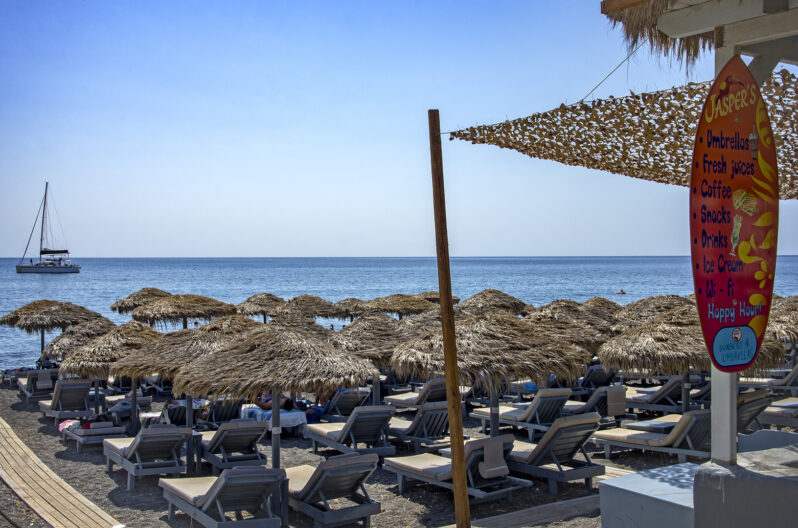
In the depth of August, when the cicadas sing and the sun burns bright, Archilochos cultural centre on Paros is not usually a hive of activity. If anything, that is reserved for the bars and beaches of a Cycladic isle increasingly drawing le beau monde.
But last week, as Greece’s great summer exodus peaked, the Archilochos was alive to the sound of debate. And, as in weeks gone past, it was a debate ignited by the state of play on the beaches that have become synonymous with pricey sunbeds and greedy entrepreneurs…
‘Reclaim the Beach’ movement in Halkidiki – Protests in Nikiti and Potidaia – the Greek City Times
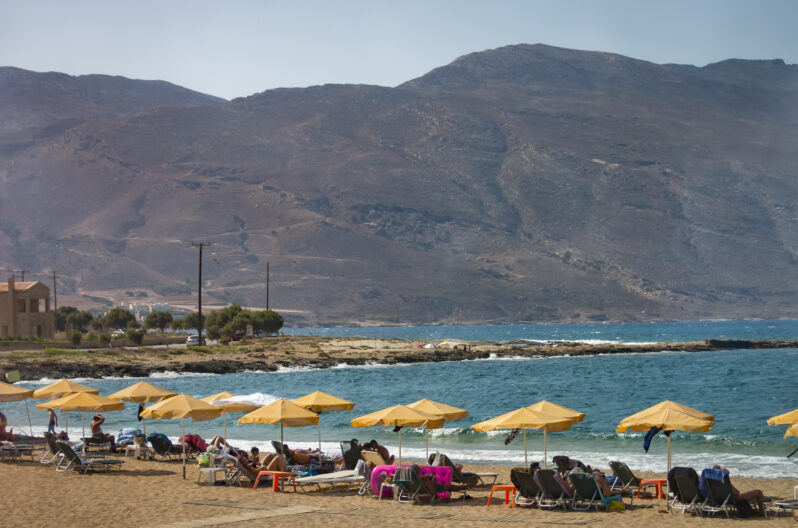
Two protests took place on Sunday in Nikiti and Potidaia of Halkidiki in the context of the “reclaim the beach” movement, also known as “the towel movement,” which is fighting against the illegal placements of chairs and lounges on public beaches.
Those who participated in the demonstrations shouted slogans and expressed their opposition to abuses by beach bars…
Paros Island Council Backs Take Back Beaches Movement – Next Year – the National Herald
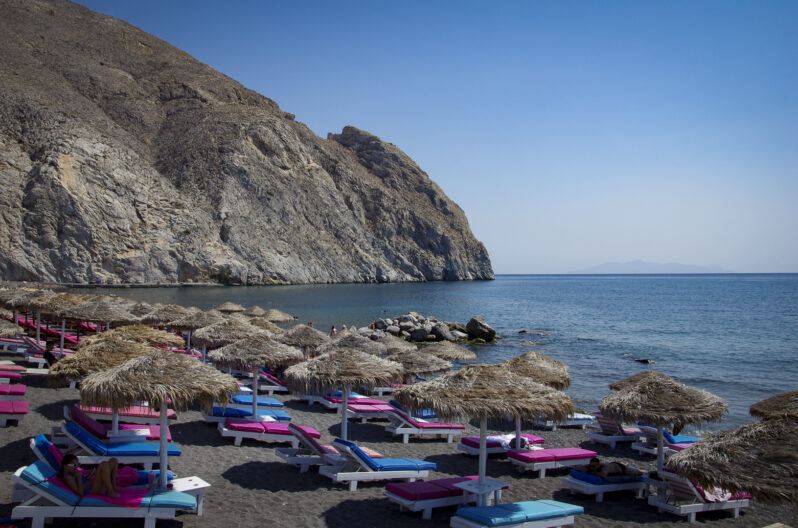
Limited in its authority, the municipal council on the island of Paros that’s overrun with unlawful businesses occupying public beaches and charging users for umbrellas and lounge beds said there should be inspections.
But officials on the island said the overall jurisdiction belongs to the Finance Ministry, with the government leasing space on prime spots to private operators although there are many that have unlawfully taken over beaches…
Angry Greeks Take Back Public Beach Movement Grows, State Reacts – the National Herald
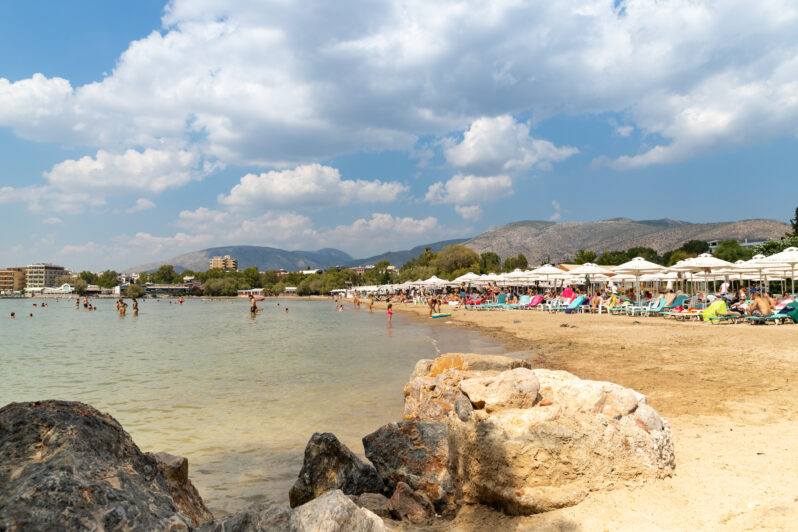
The spread of take back public beaches movement in rebellion against private interests blocking access and charging for renting sunbeds and umbrellas has spurred Greece’s government into promising violators would be punished.
The ruling New Democracy has, like previous governments, done little to prevent the takeover of public beaches that has proliferated, especially on islands, in a bid to lure more foreign tourists, enriching the companies using public lands…
Venice Isn’t Alone: 7 Sinking Cities Around the World – How Stuff Works

Many big cities sit near the ocean. They became cities in the first place because their ports facilitated trade and travel by sea.
Coastal cities all over the world are sinking — a geological process called subsidence — and it’s happening at a rate that makes scientists nervous. If these bits of land didn’t have important cities on them, it’s likely nobody would notice, or, in some cases, that they wouldn’t be sinking at all…
New York City Is Sinking under Its Own Weight – Scientific American

The weight of New York City’s 1.1 million buildings is making the city slowly sink.
Home to 8.8 million people as of 2020, New York City is by far the most populous city in the U.S. And the mass of the buildings needed to support all those residents—and the work they do—really adds up. New research published on May 8 in Earth’s Future suggests that the weight of the city itself is pressing down on the land it occupies and contributing to local sea-level rise that increases flood risks…
